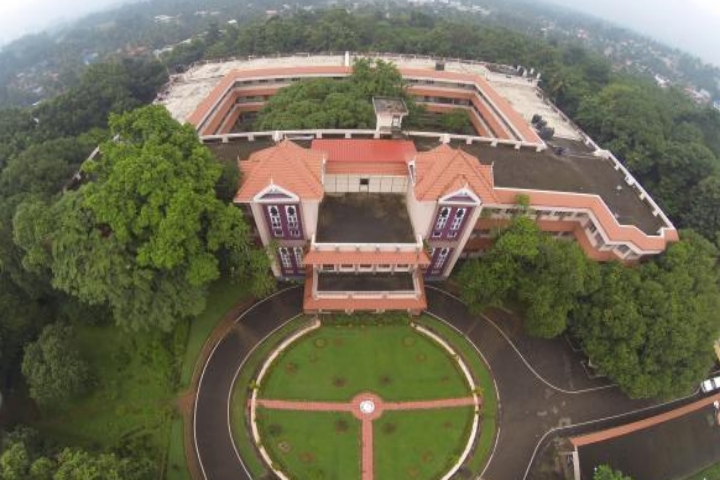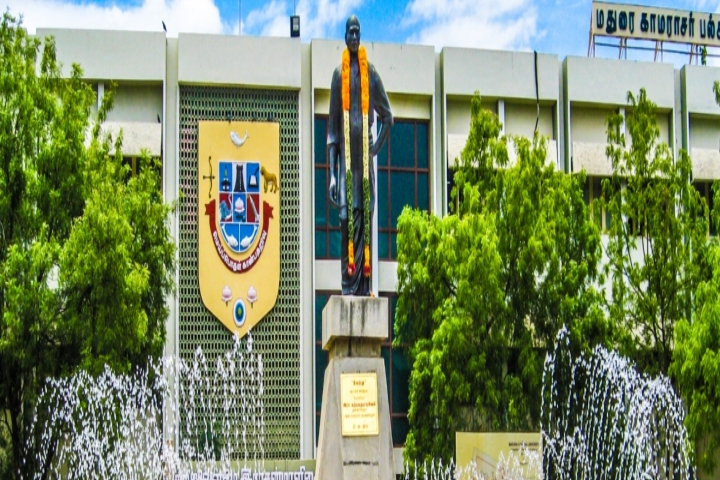
Marine Biology Course Details - Fees, Subjects, Syllabus, Duration, Eligibility, Career Scope
Degrees offered: BS, B.Sc.(Hons), M.Sc., B.Sc., M.S
What is Marine Biology
The scientific study of marine life and organisms present in the sea is called marine biology. Marine biologists inspect the population behaviours or physiology, the condition of habitats, and the effects of human activity on the animals and their habitats. Marine biology consists of a variety of subjects like pathology, biochemistry, ecology, ocean farming, anatomy, development, reproduction, and conservation.
There is a wide range of career options in marine biology. Marine biologists can go for academic research, laboratory work, or fieldwork. A bachelor’s degree is required for entry-level jobs in private research organisations and biotechnology companies. Doctoral degrees are for faculty positions and other jobs that allow you to research on your own.
Highlights of Marine Biology
Particulars | Values |
Branch Name | Marine Biology |
Degree | |
Eligibility | UG: 10+2 with biology and entrance exam PG: Bachelor’s degree in a related discipline |
Admission Process | Entrance exam |
Entrance Exam | UG: CUET UG PG: CUET PG, AIIMS PG, INI CET |
Course Fees | Rs. 1,000- Rs. 6.5 Lakhs |
Career Options | Marine Biologist, Fisheries Biologist, Aquatic Biologist, Biological Technician, Professor |
Average Salary | Rs. 6.83 LPA (Marine Biologist) |
Recruiting Companies | Central Marine Fisheries Research Institute, Central Institute of Brackishwater Aquaculture, Il India, Meteorological Survey of India, Department of Oceanography |
Specialisation or Similar Ones
Marine Biology is a very diverse and comprehensive discipline in the field of Biology. Mentioned below are some specialisations similar to or related to Marine Biology:
MSc Molecular Biology and Biotechnology | MSc Molecular Biology |
PhD Biological Sciences | MSc Biodiversity Studies and Management |
PhD Reproductive Biology | BSc Biological Science Hons |
Top Marine Biology Colleges in India with Fees
To pursue a Marine Biology course, a student needs to select a reputable college. Here are a few top universities where students can gain admission into the course:
Colleges | Fees |
Rs. 60,800 | |
Rs. 658 | |
Rs. 23,400 | |
Rs. 6.5 Lakhs | |
Rs. 30,580 | |
-Rs. 28,790 | |
Rs. 37,910 | |
Rs. 1.22 Lakhs | |
Rs. 3.16 Lakhs | |
Rs. 33,800 |
Note: The fee structure provided above can be for any particular Marine Biology (Diploma/ Degree/PGD).
Top Private Marine Biology Colleges in India with Fees
A lot of private colleges in India provide Marine Biology degrees. The tuition fee charged by a private college is more compared to a government college. Some of the popular private universities are mentioned below with their respective fees:
Colleges | Fees |
Rs 2.13 Lakhs | |
Rs. 6.3 Lakhs | |
Rs. 5.25 Lakhs | |
Rs. 3.78 Lakhs | |
Rs. 29.22 Lakhs | |
Rs. 3.94 Lakhs | |
Rs. 2.10 Lakhs | |
Rs. 1.5 Lakhs | |
Rs. 2.46 Lakhs | |
Rs. 1 Lakhs |
Top Government Marine Biology Colleges in India with Fees
Numerous government institutes in India offer marine biology at undergraduate and postgraduate levels. The fees at these government art colleges are affordable for students pursuing art courses. Below are a few top government marine biology universities:
Colleges | Fees |
-Rs. 6,440 | |
Rs. 3,940 | |
Rs. 36,940 | |
Rs. 48,600 | |
Rs. 46,460 | |
Rs. 4,290 | |
Rs. 9,750 | |
Rs. 89,460 | |
Rs. 5,190 | |
Rs. 1 Lakhs |
Eligibility Criteria (UG & PG) of Marine Biology
The eligibility criteria for different study programmes in marine biology vary depending on the university and institution. Eligibility criteria is the minimum prerequisites given by the admission conducting authorities to screen eligible students for their programme. Students who successfully meet all the requirements are eligible to go through the admission process and get admission to their desired course of study.
Undergraduate Level
To pursue undergraduate marine biology courses like Bachelor of Science in Marine Biology the candidate has to fulfil the following criteria.
- Students should have cleared their 10+2 in the science stream with biology as additional subjects are eligible.
- They should score a minimum of 55 per cent marks during their 10+2 exams.
- Direct admissions based on cut-off are given in a few colleges.
- Particular colleges conduct their entrance tests to select candidates for a marine biology course. Those who clear the entrance exam are given admission.
Entrance Exam for UG Marine Biology
Admission to the courses of marine biology at the undergraduate level can either take place depending on the entrance exams or can also be done by qualifying for the merit list. The following are some of the entrance exams that are carried out in the country to accept students at different universities for their marine biology courses:
Exam Name | Level | Conducting Body | Exam Schedule |
National | NTA |
Postgraduate Level
Candidates must follow the eligibility criteria before applying to marine biology at the postgraduate level. For candidates to get admission to the postgraduate courses in the marine biology field, they need to graduate with a valid score. The eligibility requirements for a postgraduate course are mentioned below:
- Candidates must have completed a bachelor’s degree in life sciences such as botany, aquaculture, marine biology, zoology, biochemistry, microbiology, and biotechnology.
- The minimum pass percentage must be 55-60 per cent for a bachelor’s degree. Universities offering M.Sc./M.Phil./PhD conduct their entrance exam for admission.
- Selection is based on the performance of the candidates in the entrance examination.
Entrance Exam for PG Marine Biology
Admission into the PG courses is granted to students after they clear the examination. The following are some of the entrance exams that are carried out in the country to accept students at different universities for their agricultural courses:
Exam Name | Level | Conducting Body | Exam Schedule |
National | AIIMS | ||
National | NTA |
Scope of Marine Biology in India and Abroad
There is a huge variety of job profiles after graduating in marine biology. Most roles require research and scientific skills, specialising in a particular area, and technical skills. Jobs are in coastal management, invertebrate biodiversity, fisheries biology, and reef ecology of marine pollution. Relevant experience after your degree is essential to have a successful career in the future.
Candidates with the capability to work with a variety of people from government to local people and many more are needed. Strong teamwork enthusiasts make research and laboratory work easier. Students who are physically fit and practically adventurous are a good match. They can expect a classroom-based or a field-based career according to your preference.
Course Fees Marine Biology
| Minimum Fees | Maximum Fees | |||
|---|---|---|---|---|
| Private | Government | Private | Government | |
| UG | ||||
| PG | ||||
| DOCTORAL | ||||
Course Subjects
Marine Biology for UG Course
The bachelor’s degree in marine biology is for three years divided into six semesters. A general overview of marine biology subjects taught at UG levels are provided below.
Subjects | |
Physical Oceanography | Chemical Oceanography |
Biological Oceanography | Biodiversity |
Coastal Vegetation | Marine Microbiology |
Invertebrates, Prochordates and Vertebrates | Capture Fishery |
Mariculture | Marine Ecology |
Marine Biology for PG Course
A master's degree in marine biology is for two years. The syllabus of CUSAT Kochi comprises the following semester-wise syllabus:
Semester 1 | |
Marine Biology | Cytology and Fish Genetics |
Biochemistry | Marine Biology - Practical |
Biochemistry and Instrumentation - Practical | - |
Semester 2 | |
Marine Microbiology | Fish and Fisheries |
Marine Pollution | Marine Biotechnology |
Marine Microbiology and Biotechnology – Practical | Fish and Fisheries – Practical |
Semester 3 | |
Fish Pathology | Aquaculture |
General Animal Physiology | Marine Ecology |
Marine Ecology and Aquaculture - Practical | Fish Physiology and Pathology – Practical |
Semester 4 | |
Project work and Dissertation | - |
Careers in Marine Biology
A degree in marine biology contains countless opportunities from being a biologist to unravelling the secrets of the oceans. The scope of marine biology is huge, and there is something for students for their interest. Ocean engineering is said to be the highest-paying job after marine biology. Other jobs following ocean engineering are marine biologist, marine mammal trainer, and marine archaeologist.
The career is rewarding in India and abroad as well. The average salary for a marine biologist is Rs. 6.83 LPA in India. It increases with experience, location, and skill. This proves that marine biology is a lucrative career with a high salary package and satisfying job roles.
Upcoming trends
Sea Level Rise- Rising sea levels are a result of a warming climate. This is one of the worst impacts of global warming. One thing we can do to curb this effect is to cut our greenhouse gas emissions. Using water efficiently and reducing carbon footprint should be considered.
- Blue Carbon Ecosystems
- High-frequency radars, sea gliders, animal telemetry, buoy systems, drifters, underwater hydrophones, cold cards, and ROVs are some of the other technologies used in marine biology.
- Satellite Oceanography
- SONAR
- Geographical Information System (GIS)
Job Profiles and Top Recruiters
There are various job Profiles for Marine Biology Professionals. The majority of marine biologists work in state and government agencies. The job positions offer job security and more opportunities for promotion. There is a rising demand for a marine biologist who is passionate and talented in their domain. Teachers are also welcome to the field. Some of the job roles are mentioned below:
Job Profile | Description |
Marine Biologist | A Marine Biologist researches life in oceans and other saltwater environments. They observe and analyse data, conduct experiments, and rehabilitate injured animals. |
Fisheries Biologist | A Fisheries Biologist studies aquatic ecosystems to determine population dynamics and the impacts of them. Identify fish and other types of marine life. |
Biological Technician | A Biological Technician sets up, maintains, and cleans laboratory instruments and equipment. They gather and prepare biological samples such as blood, food, and bacteria cultures for laboratory analysis. |
Aquatic Biologist | Organisms in lakes, streams, and ponds are studied by an Aquatic Biologist. Aquatic terrestrial ecosystems, fish and wildlife habitat, population assessment, and environmental impacts are assessed by them. |
Professor | A Professor gives lectures on policy, planning, and management of aquatic activities. They conduct expeditions on fishing and research vessels. |
Fishery Data Manager | A Fishery Data Manager oversees the activities that take place in a fishery. He or she monitors fishing growth, prepping, maintaining equipment, and screening cultivation areas are responsibilities of a fishery data manager. |
Reef Restoration | A Reef Restoration Manager makes sure everything is in place to make restoration function smoothly. |
Top Recruiters in the Marine Biology Sector
Marine biologists have the privilege to work in the private and government sectors as well. Top recruiting areas include universities, international organisations, marine research institutes, government agencies, commercial companies, and non-profit organisations. Top recruiting organisations/companies are:
- Central Marine Fisheries Research Institute
- Central Institute of Brackishwater Aquaculture
- Meteorological Survey of India
- Department of Oceanography
- Geological Survey of India
- WaterSports Simple India Pvt Ltd.
- National Institute of Oceanography
- Vertex Infosoft Solution Pvt Ltd
- Jacobs Engineering Group Inc
- Pfizer Inc
Average Salary
Average salaries for some eminent job profiles in marine biology are mentioned below for reference purposes:
Job Profile | Average Salary |
Marine Biologist | Rs. 6.83 LPA |
Fisheries Biologist | Rs.5.01 LPA |
Biological Technician | Rs. 1.78 LPA |
Aquatic Biologist | Rs. 3.37 LPA |
Reef Restoration Manager | Rs. 4.55 LPA |
Source: Glassdoor
Note: Salary may vary depending on various factors.
Required Skillset for Marine Biology
Students who wish to pursue Marine Biology courses should have specific skills to perform well in their careers. Some fundamental skills which can help candidates gain knowledge and skills are as follows:
- Technical Skills
- Passion
- Other Soft Skills
- Analytical Mind
Course Curriculum for Marine Biology
Marine biology deals with the study of oceans and their biological organisms. It is a study of all living organisms in the water. A wide variety of subjects is covered under marine biology. This course includes several subjects like physical oceanography, marine chemistry, marine biology, and marine geology. This course explores life that deals with the various depth stages of oceans like underwater animals, plants, corals, insects, microorganisms, and tiny creatures.
Detailed knowledge of the biology of various underwater animals and plants, their habits, and life cycles are imparted to students. Doctoral studies are designed for candidates who want to research in the field of marine biology. The future of the candidates is assured that they become Researchers, Biologists, and experts in marine biology.
Popular Marine Biology Entrance Exams in India
Frequently Asked Questions (FAQs)
Question: What are the subjects in a Marine Biology course?
Answer :
The subjects in the Marine Biology course are very diverse. Some subjects are Fundamentals of Marine Ecology, Chemical Oceanography, Botany and Zoology, Biology of Marine Organisms, Fundamentals of Fishery Science, and Marine Geology.
Question: What is the average salary of a Marine Biology graduate?
Answer :
The average salary after studying Marine Biology depends on many factors such as the location of the company, the experience of the candidate, and the job profile. The average salary of a Marine Biologist is 6.83 LPA.
Question: What are the career options in the field of Marine Biology?
Answer :
There are various career opportunities available to candidates in the field of marine biology. Some of them are Marine Biologists, Fisheries Biologists, Aquatic Biologists, Biological Technicians, and Professors.
Question: What are the specialisations similar or related to Marine Biology?
Answer :
Some of the specialisations that are similar or related to Marine Biology are MSc Molecular Biology and Biotechnology, MSc Molecular Biology, PhD Biological Sciences and MSc Biodiversity Studies and Management.
Question: What are the top entrance exams in the field of Marine Biology?
Answer :
The top exams in the field of Marine Biology are CUET UG, INI CET, and CUET PG.



















